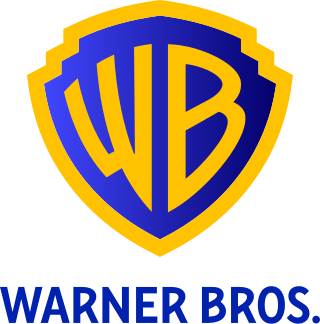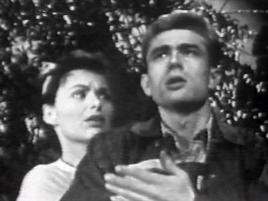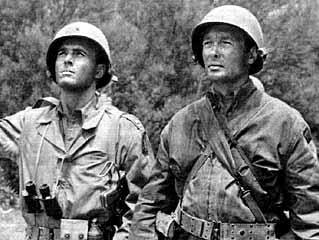
Warner Bros. Entertainment Inc. is an American film and entertainment studio headquartered at the Warner Bros. Studios complex in Burbank, California, and a subsidiary of Warner Bros. Discovery (WBD). Founded in 1923 by four brothers, Harry, Albert, Sam, and Jack Warner, the company established itself as a leader in the American film industry before diversifying into animation, television, and video games, and is one of the "Big Five" major American film studios, as well as a member of the Motion Picture Association (MPA).
A wheel series, wheel show, wheel format or umbrella series is a television series in which two or more regular programs are rotated in the same time slot. Sometimes the wheel series is given its own umbrella title and promoted as a single unit instead of promoting its separate components.

Warner Bros. Animation Inc. is an American animation studio which is part of the Warner Bros. Television Studios division of Warner Bros., a flagship of Warner Bros. Discovery. As the successor to Warner Bros. Cartoons, which was active from 1933 to 1969, the studio is closely associated with the Looney Tunes and Merrie Melodies characters, among others. Warner Bros. re-established its animation division in 1980 to produce Looney Tunes–related works, and Turner Broadcasting System merged with WBD predecessor Time Warner in 1996. In March 2001, Hanna-Barbera was absorbed into the studio.

Warner Bros. Television Studios is an American television production and distribution studio of the Warner Bros. Television Group division of Warner Bros.. Since 2006, it is one of the two companies that serve as television production arms of The CW, alongside Paramount Global's subsidiary CBS Studios; it also serves as a television production arm of DC Comics and distribution arm of HBO, Cartoon Network and Adult Swim. Warner Bros. Television Studios also produces shows for other networks & streaming services.

Robert Montgomery Presents is an American dramatic television series which was produced by NBC from January 30, 1950, until June 24, 1957. The live show had several sponsors during its eight-year run, and the title was altered to feature the sponsor, usually Lucky Strike cigarettes, for example, Robert Montgomery Presents Your Lucky Strike Theater, ....The Johnson's Wax Program, and so on.

Norman Eugene "Clint" Walker was an American actor. He played cowboy Cheyenne Bodie in the ABC/Warner Bros. western series Cheyenne from 1955 to 1963.

Sugarfoot is an American Western television series that aired for 69 episodes on ABC from 1957-1961 on Tuesday nights on a "shared" slot basis – rotating with Cheyenne ; Cheyenne and Bronco ; and Bronco. The Warner Bros. production stars Will Hutchins as Tom Brewster, an Easterner who comes to the Oklahoma Territory to become a lawyer. Brewster was a correspondence-school student whose apparent lack of cowboy skills earned him the nickname "Sugarfoot", a designation even below that of a tenderfoot.

Robert Louis Colbert is an American actor best-known for his leading role as Dr. Doug Phillips on the ABC television series The Time Tunnel and his two appearances as Brent Maverick, a third Maverick brother in the ABC/Warner Brothers western Maverick.

Cheyenne is an American Western television series of 108 black-and-white episodes broadcast on ABC from 1955 to 1962. The show was the first hour-long Western, and was the first hour-long dramatic series of any kind, with continuing characters, to last more than one season. It was also the first series to be made by a major Hollywood film studio which did not derive from its established film properties, and the first of a long chain of Warner Bros. original series produced by William T. Orr.

The Gallant Men is a 1962–1963 ABC Warner Bros. Television series which depicted an infantry company of American soldiers fighting their way through Italy in World War II.

Colt .45 is an American Western television series, originally starring Wayde Preston, which aired on ABC between October 1957 and September 1960.
The 1955–56 network television schedule for the four major English language commercial broadcast networks in the United States. The schedule covers primetime hours from September 1955 through March 1956. The schedule is followed by a list per network of returning series, new series, and series cancelled after the 1954–55 season.
William T. Orr was an American actor and television producer associated with various Western and detective programs of the 1950s-1970s. In most of his Warner Bros. series, he was billed as "Wm. T. Orr." Orr began his career as an actor; his film credits included The Mortal Storm, The Gay Sisters, and The Big Street.

Conflict is a 1956 to 1957 American ABC television series that was a successor to the earlier Warner Bros. Presents. Although Conflict assumed the same time slot as its predecessor, the two do not share the same format. Where Warner Bros. Presents had been a wheel series, Conflict was fully an anthological series. However, since Cheyenne and Conflict alternated the Tuesday 7:30 P.M. time slot, the net effect was that of a proper wheel series—even though Cheyenne and Conflict were not under the same umbrella title.
Daffy Duck and Porky Pig Meet the Groovie Goolies is a 1972 animated one-hour TV-movie that was aired on December 16 as an episode of the anthology series The ABC Saturday Superstar Movie. In this Filmation-produced movie, Daffy Duck, Porky Pig, and other Looney Tunes characters interact with the characters from the Filmation series Groovie Goolies.

Animaniacs is an American animated comedy musical television series created by Tom Ruegger for Fox's Fox Kids block in 1993, before moving to The WB in 1995, as part of its Kids' WB afternoon programming block, until the series ended on November 14, 1998. It is the second animated series produced by Steven Spielberg's Amblin Entertainment in association with Warner Bros. Animation, after Tiny Toon Adventures. It initially ran a total of 99 episodes, along with a feature-length film, Wakko's Wish. Reruns later aired on Cartoon Network from 1997 to 2001, Nickelodeon from 2001 to 2003, Nicktoons from 2003 to 2005, and Discovery Family from 2012 to 2014.
Warner Bros. Studios, Burbank, formerly known as First National Studio (1926–1929), Warner Bros.-Seven Arts Studios (1967–1970) and The Burbank Studios (1972–1990), is a major filmmaking facility owned and run by Warner Bros. Entertainment Inc. in Burbank, California. First National Pictures built the 62-acre (25 ha) studio lot in 1926 as it expanded from a film distributor to film production.

Kings Row is an hour-long American television period drama starring Jack Kelly, Nan Leslie and Robert Horton which was broadcast on ABC between September 13, 1955 and January 17, 1956 as part of the wheel series Warner Bros. Presents. It was the first of 20 filmed shows produced for ABC between 1955 and 1963 by Warner Bros Television, under the supervision of executive producer William T. Orr, Kings Row is also the only straight drama among those shows, whereas Westerns and detective/adventure series comprised 14 of the 20 productions.
Casablanca is an hour-long American television series, in the genre of spying and intrigue during the Cold War, which was broadcast on ABC between September 27, 1955 and April 24, 1956 as part of the wheel series Warner Bros. Presents. The third of 20 filmed shows produced for ABC, between 1955 and 1963, by Warner Bros. Television, under the supervision of executive producer William T. Orr, Casablanca is also the only one among those shows to be structured in the form of a non-U.S.-based Cold-War-intrigue storyline, while 14 of the 20 productions were western and detective/adventure series.












